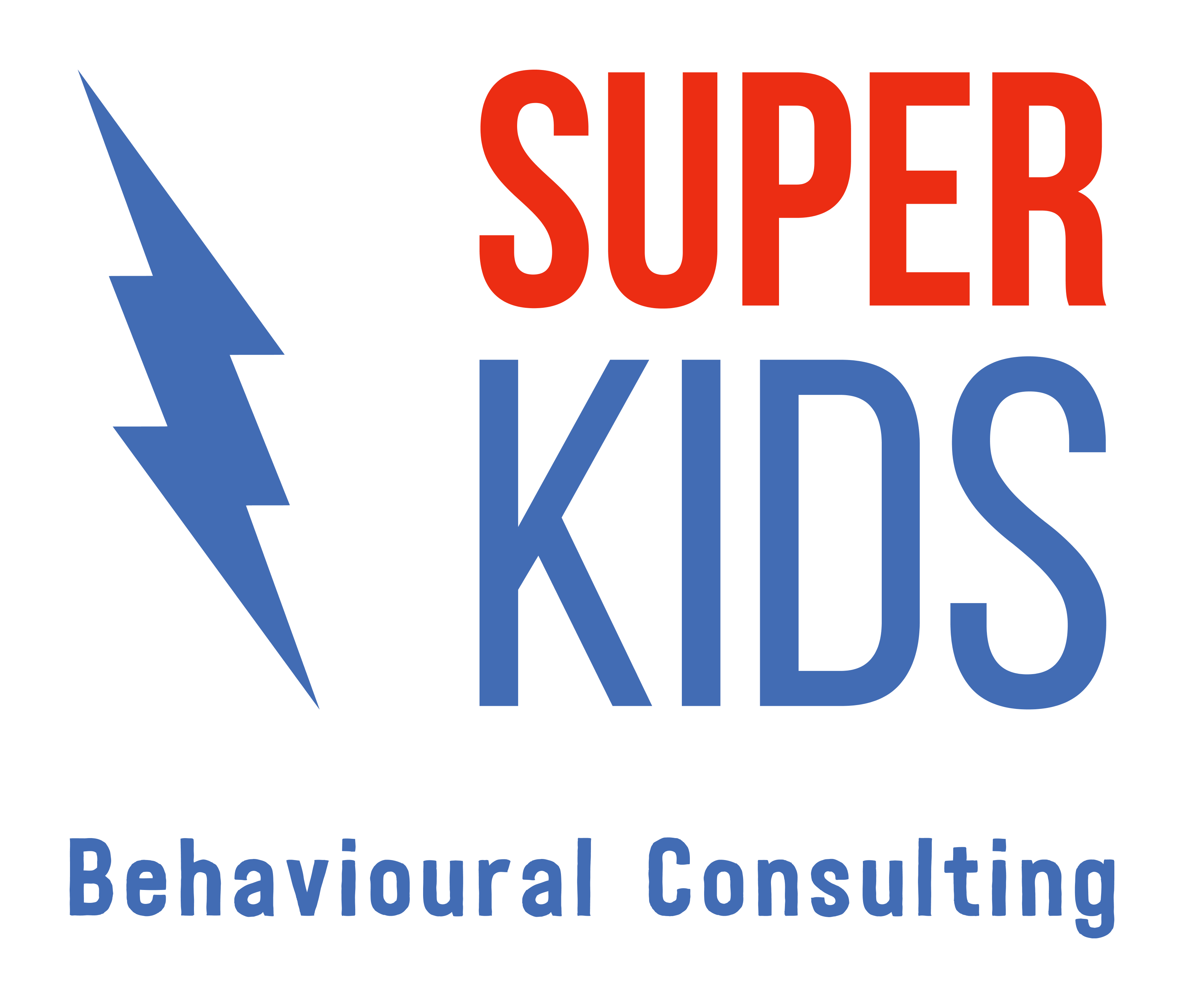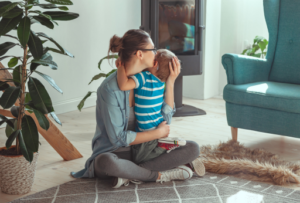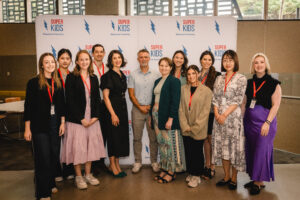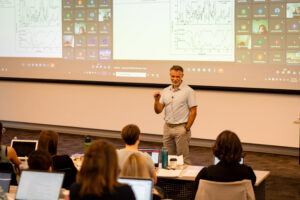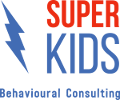What Is a Developmental Educator?
Roles, Qualifications, and How They Help
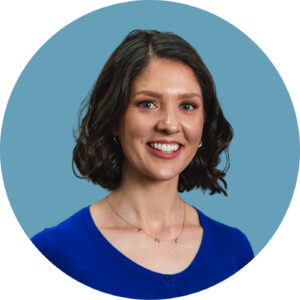
Renee Collins, CBA, BCBA, BSP, DE
CLINICAL DIRECTOR (She/Her)
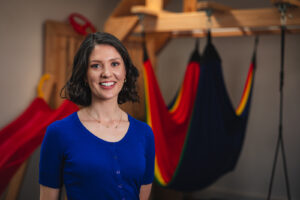
If you’ve ever searched for support services for a person with a disability, you may have come across the term Developmental Educator. But what is a Developmental Educator? And how do they fit into the landscape of disability support professionals in Australia?
In this article, we break down exactly what a Developmental Educator does, how they’re qualified, and why they play such a vital role in supporting people with disability to live more independent, empowered, and inclusive lives.
What Is a Developmental Educator?
A Developmental Educator is a university-qualified allied health professional who specialises in working alongside people with disability to improve their quality of life and achieve meaningful goals. Developmental Educators are trained to apply behavioural, developmental, and social learning theories to help people acquire skills in communication, social interaction, independence, and community participation.
In Australia, there are currently 433 Developmental Educators (membership breakdown for Developmental Educators Australia as of 31 October 2024). The majority of Developmental Eductaors can be found in South Australia (330), Victoria (49) and New South Wales (45).
Uniquely positioned among disability support professionals and as an NDIS approved profession, Developmental Educators consider the whole person—not just their diagnosis. They use a person-centred, strengths-based approach and work within a human rights framework to remove barriers to inclusion.
In Australia, Developmental Educators should be registered through Developmental Educators Australia (DEA), the peak professional body that upholds ethical standards, continuing professional development, and qualifications for the profession.
What Do Developmental Educators Do?
Developmental Educators (DEs) work across a broad range of areas and with people of all ages. Their roles may vary depending on the setting, home, school, workplace, or community, but their focus is always on building skills and reducing barriers.
Here are some key areas where a Developmental Educator can help:
1. Skill Development
Developmental Educators support the teaching of life skills such as:
- Communication (e.g., AAC use, expressive language)
- Social skills and emotional regulation
- Toileting and personal care
- Executive functioning and time management
- School readiness or employment preparation
2. Behaviour Support
Using evidence-based strategies, DEs assess and support behaviours of concern by identifying triggers and teaching replacement behaviours. They may be involved in developing or implementing positive behaviour support plans (PBSPs).
3. Assessment and Goal Setting
DEs conduct functional assessments and collaborate with individuals and families to set meaningful, achievable goals. These goals align with the individual’s interests, values, and NDIS plan (if applicable).
4. Advocacy and Capacity Building
Whether it’s helping a family understand their child’s needs or empowering a young adult to access public transport, Developmental Educators aim to build the confidence and capacity of the person and those who support them.
5. Collaboration with Allied Health Professionals
Developmental Educators work closely with other professionals, including occupational therapists, behaviour analysts, speech pathologists, psychologists, teachers, and support workers, ensuring holistic and coordinated support.
What Qualifications Do Developmental Educators Have?
To become a Developmental Educator in Australia, individuals typically complete a university degree in Disability and Developmental Education. There are currently three Australian degrees accredicted by the DEA. They are:
1. Bachelor of Disability and Developmental Education (Flinders University, Adelaide)
These qualifications include core units in:
- Psychology and behaviour analysis
- Communication strategies
- Disability rights and legislation
- Evidence-based interventions
- Assessment and programming
How Are Developmental Educators Different from Other Disability Support Professionals?
Developmental Educators are the only allied health professionals whose entire degree is dedicated to disability. While there is some overlap with other professionals in disability support, Developmental Educators bring a unique blend of:
- Developmental insight: They understand how learning and behaviour change over time and how to tailor interventions accordingly.
- Whole-of-life approach: DEs look beyond immediate goals to support long-term outcomes, including emotional wellbeing, independence, and community inclusion.
- Behavioural expertise: Many Developmental Educators are trained in behavioural sciences and use this training ethically and positively to support meaningful change.
This makes them particularly effective in complex cases where multiple supports are needed, or where traditional models haven’t produced the desired outcomes.
Who Can Benefit from Working with a Developmental Educator?
Developmental Educators support people across the lifespan, from young children to older adults. They are particularly helpful for individuals who:
- Are NDIS participants seeking functional, person-centred support
- Have developmental delays, intellectual disability, autism, or physical disability
- Need help with daily living skills, routines, or social interaction
- Exhibit behaviours of concern
- Are transitioning to school, work, or independent living
Families, schools, and disability service providers also benefit from the guidance and coaching DEs offer.
Therapeutic Supports line item (e.g., 15_613_0128_1_3), which falls under the Capacity Building budget category. This line item covers supports that help participants apply functional skills for daily activities, improve social interactions, and participate more fully in community life. The specific line item used will depend on the services provided, but the primary category for this role is therapeutic and capacity-building.
Final Thoughts
As Australia continues to embrace more personalised, inclusive, and evidence-informed disability supports, the role of the Developmental Educator has never been more important.
From early childhood through to adulthood, Developmental Educators help individuals build independence, confidence, and meaningful participation in their communities.
As a Developmental Educator myself (Renee), I know how powerful this support can be. At Super Kids Behavioural Consulting, I work closely with families to provide practical strategies, whether that’s guiding a child through toilet training, supporting school transitions, or helping young people prepare for work and independence.
👉 If you’d like to explore how developmental education can support your child or family, get in touch with the Super Kids team today.
Super Kids acknowledges each individual’s personal preference to use identity-first or person-first language to describe themselves or their loved one. We interchangeably use both language conventions and therefore refer to both Autistic children and children with Autism.
